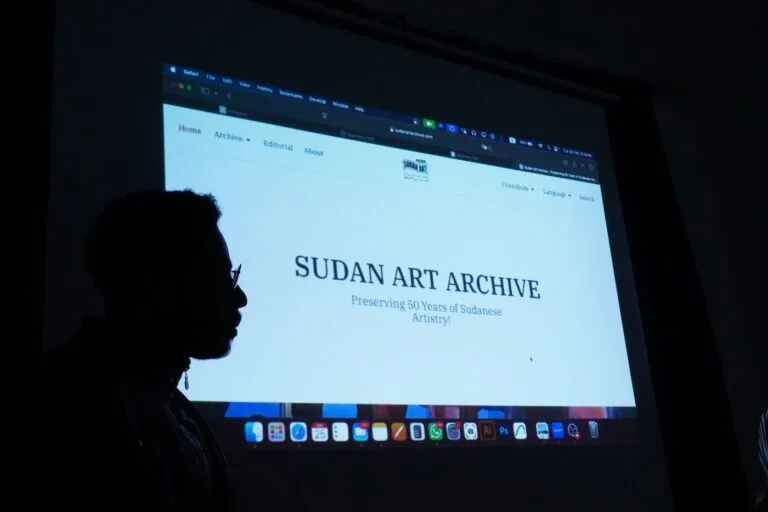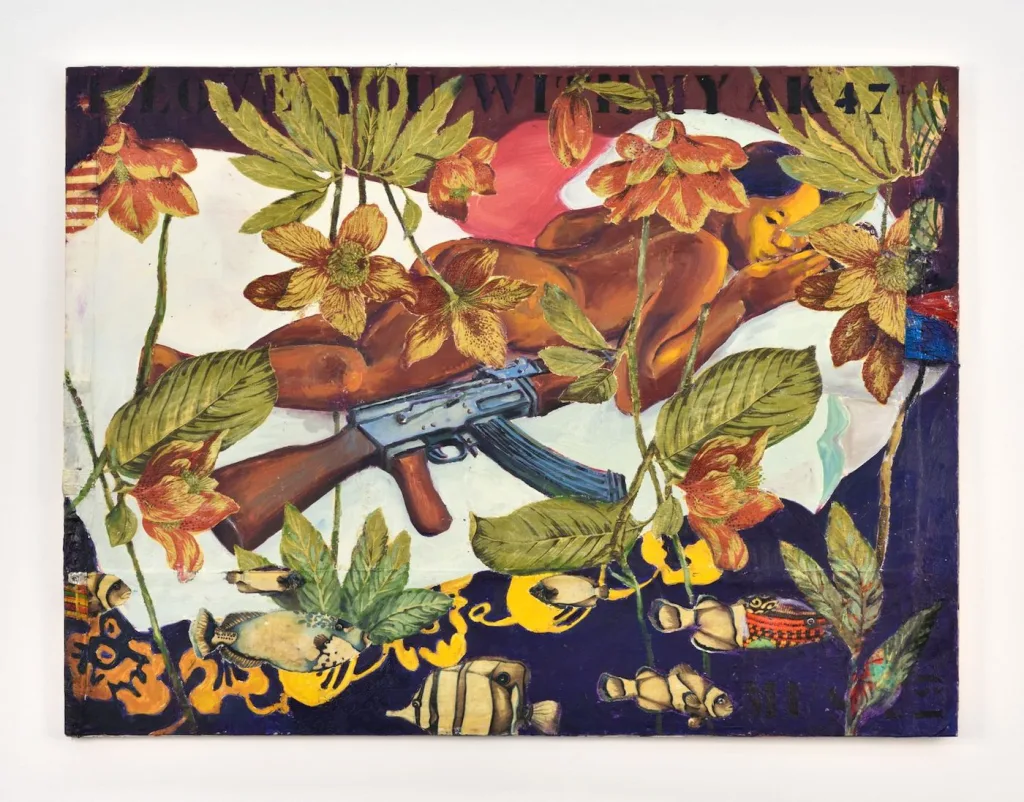Sudan Art Archive seeks to preserve Sudanese visual arts following a time where Sudan’s cultural memory has long been under attack through decades of state censorship and the effects of the devastating ongoing war that began in April 2023. As museums are looted and studios destroyed, the Sudan Art Archive, led by Reem Aljeally and a network of artists spread from Khartoum, Sudan to Muscat, Oman has recently emerged with the aim of both memorialising art, stories and identities erased on the ground and facilitating solidarity in the diaspora. Through digital preservation, and with an eye on the future, it hopes to reclaim narrative power in exile – one pixel at a time.
Attacks on Sudan’s collective memory have a long, painful historical thread, dating back to British colonial occupation and peaking during Omar Al-Bashir’s three-decade rule. The National Islamic Front systematically targeted intellectuals, artists and national records, enforcing a monolithic Islamist-nationalist narrative that erased diverse identities. Just as healing began after his ouster in 2019, the war between the Rapid Support Forces (RSF) and Sudan Army Forces (SAF) erupted on the 15th of April 2023, unleashing new violence not only against the general population but against culture —cultural centers, galleries and the Sudan National Museum have faced demolition and looting.

Amid this maelstrom, the digital realm might seem to offer the only possible refuge for Sudan’s heritage. It is with this idea in mind that the Sudan Art Archive, a project by the Muse Multi Studios —based between Sudan and Egypt – launched in February 2025 at Cairo’s Arab Digital Expression Foundation with the aim of digitally preserving Sudanese visual art production since 1975. Khartoum, the capital city whose diverse architecture and unique social life stem from its dual foundings (1824, 1910), holds irreplaceable layers of Sudan’s cultural memory. In destroying the creative hubs that flourished post-Al-Bashir, the current war leaves Sudan’s physical archive and its living architectural records facing an unknown fate.
The revolution of 2018–19 and the periods that followed allowed for a slight liberation in cultural expression, including the concepts of archiving and documentation, away from the narratives sponsored by Al-Bashir’s government. This also contributed to shaping awareness of archiving among Reem Aljeally and her colleagues. Supported by Culture Resource, A.M. Qattan Foundation, Ettijahat – Independent Culture, Aflamuna, and L’Art Rue, the SAA’s mission is based on a resilient and global diaspora.

The idea has been there since 2022, but crystallised after the outbreak of the war. With the state unable to protect cultural assets, Sudanese artists, curators, and archivists in exile, from Cairo to Nairobi and then across the Middle East, started collaborating to rebuild a canon. The Sudanese Art Archive seeks to transcend mere storage to be a resistance instrument and dynamic tool that can be shared online to foster solidarity in exile. This is especially because the war has reshaped artists’ narratives, ideas and consciousness and this serves as a way for artists to still express themselves.
Born out of necessity, the Sudanese Art Archive should become both a monument and an act of resistance. It hopes to democratise access to Sudan’s artistic past, wresting it from historically unreliable state control. While Aljeally and her team face enormous challenges, their work highlights how memory can be a powerful weapon against erasure, and the archive a revolutionary act.

But it also prompts urgent questions, such as: Who controls the online narrative? How can an archive serve as both memorial and resistance? And how can we ensure that digital records survive and remain accessible in the long term? In the meantime, SAA is not just preserving art but helping to protect the soul of the nation, continuing Sudan’s vibrant cultural heritage, ready to inspire the rebuilding that is yet to come.


